#d0dcde Color Information
In a RGB color space, hex #d0dcde is composed of 81.6% red, 86.3% green and 87.1% blue. Whereas in a CMYK color space, it is composed of 6.3% cyan, 0.9% magenta, 0% yellow and 12.9% black. It has a hue angle of 188.6 degrees, a saturation of 17.5% and a lightness of 84.3%. #d0dcde color hex could be obtained by blending #ffffff with #a1b9bd. Closest websafe color is: #cccccc.
-
- R 82
- G 86
- B 87
-
- C 6
- M 1
- Y 0
- K 13
● #d0dcde color description : Light grayish cyan.
#d0dcde Color Conversion
The hexadecimal color #d0dcde has RGB values of R:208, G:220, B:222 and CMYK values of C:0.06, M:0.01, Y:0, K:0.13. Its decimal value is 13688030.
| Hex triplet | d0dcde | #d0dcde |
|---|---|---|
| RGB Decimal | 208, 220, 222 | rgb(208,220,222) |
| RGB Percent | 81.6, 86.3, 87.1 | rgb(81.6%,86.3%,87.1%) |
| CMYK | 6, 1, 0, 13 | |
| HSL | 188.6°, 17.5, 84.3 | hsl(188.6,17.5%,84.3%) |
| HSV (or HSB) | 188.6°, 6.3, 87.1 | |
| Web Safe | cccccc | #cccccc |
| CIE-LAB | 86.933, -3.64, -2.379 |
|---|---|
| XYZ | 64.788, 69.87, 79.176 |
| xyY | 0.303, 0.327, 69.87 |
| CIE-LCH | 86.933, 4.348, 213.16 |
| CIE-LUV | 86.933, -6.699, -3.01 |
| Hunter-Lab | 83.588, -7.927, 2.351 |
| Binary | 11010000, 11011100, 11011110 |
Color Schemes with #d0dcde
Alternatives to #d0dcde
Below, you can see some colors close to #d0dcde. Having a set of related colors can be useful if you need an inspirational alternative to your original color choice.
#d0dcde Preview
This text has a font color of #d0dcde.
<span style="color:#d0dcde;">Text here</span>This paragraph has a background color of #d0dcde.
<p style="background-color:#d0dcde;">Content here</p>This element has a border color of #d0dcde.
<div style="border:1px solid #d0dcde;">Content here</div>.text {color:#d0dcde;}.background {background-color:#d0dcde;}.border {border:1px solid #d0dcde;}Shades and Tints of #d0dcde
A shade is achieved by adding black to any pure hue, while a tint is created by mixing white to any pure color. In this example, #070a0b is the darkest color, while #fefefe is the lightest one.
-
#070a0b
#070a0brgb(7,10,11) -
#101516
#101516rgb(16,21,22) -
#182022
#182022rgb(24,32,34) -
#202b2d
#202b2drgb(32,43,45) -
#283639
#283639rgb(40,54,57) -
#304144
#304144rgb(48,65,68) -
#384c50
#384c50rgb(56,76,80) -
#40575b
#40575brgb(64,87,91) -
#486267
#486267rgb(72,98,103) -
#506d72
#506d72rgb(80,109,114) -
#58797e
#58797ergb(88,121,126) -
#608489
#608489rgb(96,132,137) -
#698f95
#698f95rgb(105,143,149)
-
#74979d
#74979drgb(116,151,157) -
#7fa0a5
#7fa0a5rgb(127,160,165) -
#8ba9ad
#8ba9adrgb(139,169,173) -
#96b1b6
#96b1b6rgb(150,177,182) -
#a2babe
#a2babergb(162,186,190) -
#adc2c6
#adc2c6rgb(173,194,198) -
#b9cbce
#b9cbcergb(185,203,206) -
#c4d3d6
#c4d3d6rgb(196,211,214) -
#d0dcde
#d0dcdergb(208,220,222) -
#dce5e6
#dce5e6rgb(220,229,230) -
#e7edee
#e7edeergb(231,237,238) -
#f3f6f6
#f3f6f6rgb(243,246,246) -
#fefefe
#fefefergb(254,254,254)
Tones of #d0dcde
A tone is produced by adding gray to any pure hue. In this case, #d6d8d8 is the less saturated color, while #b1f2fd is the most saturated one.
-
#d6d8d8
#d6d8d8rgb(214,216,216) -
#d3dadb
#d3dadbrgb(211,218,219) -
#d0dcde
#d0dcdergb(208,220,222) -
#cddee1
#cddee1rgb(205,222,225) -
#cae0e4
#cae0e4rgb(202,224,228) -
#c7e3e7
#c7e3e7rgb(199,227,231) -
#c4e5ea
#c4e5eargb(196,229,234) -
#c1e7ed
#c1e7edrgb(193,231,237) -
#bee9f0
#bee9f0rgb(190,233,240) -
#baebf4
#baebf4rgb(186,235,244) -
#b7eef7
#b7eef7rgb(183,238,247) -
#b4f0fa
#b4f0fargb(180,240,250) -
#b1f2fd
#b1f2fdrgb(177,242,253)
Color Blindness Simulator
Below, you can see how #d0dcde is perceived by people affected by a color vision deficiency. This can be useful if you need to ensure your color combinations are accessible to color-blind users.
